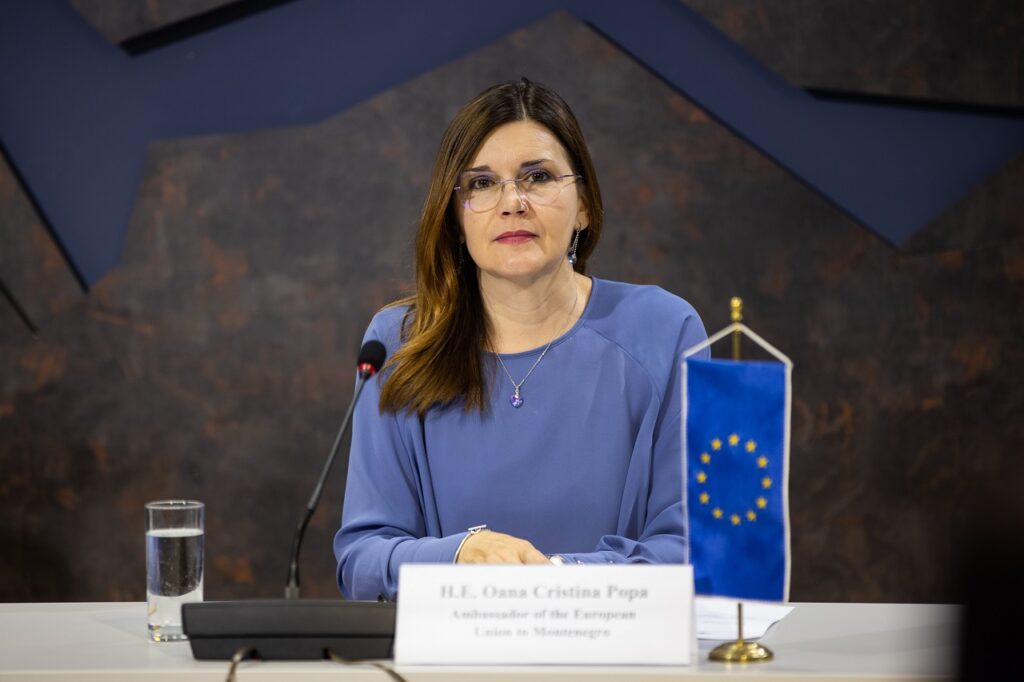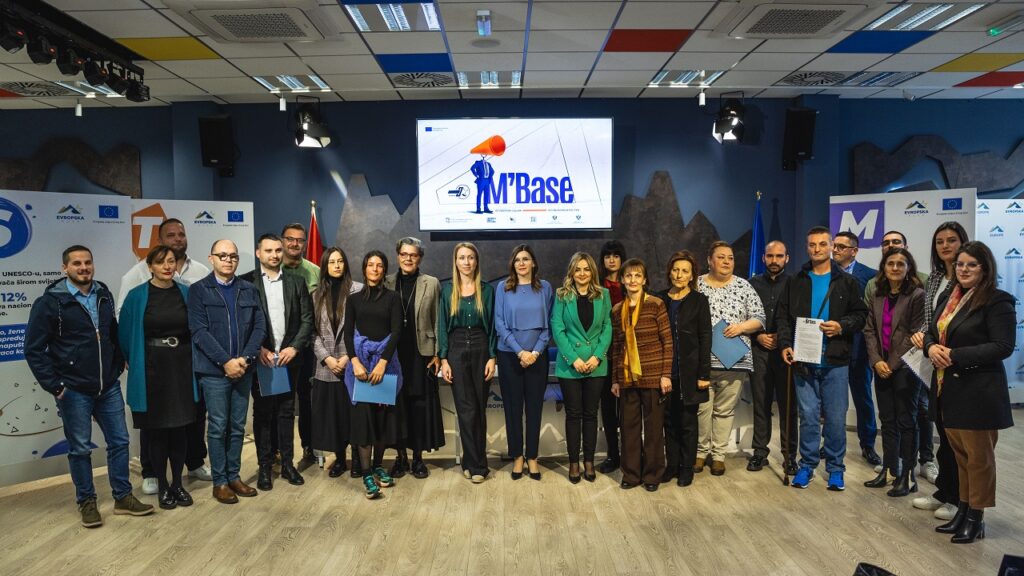“Civil society in Montenegro represents a great resource for the Europeanization of society, and the M’BASE programme has been a way for many in recent years to continue their activities, because there were no funds allocated by the Government, hence this programme has influenced and continues to influence the preservation of the fabric of civil society in Montenegro“, it was evaluated at today’s signing of 19 contracts worth of 652,284.84 EUR, within the fourth call for proposals of the M’BASE programme, which is implemented by the Centre for Civic Education (CCE) with partners and associates, and financed by the European Union.
“Civil society plays a vital role in bringing communities together and bridging social divides, especially in times of political instability. I know this is a big responsibility, but I also know the strength and eagerness of the Montenegrin civil society. We count on you to continue to promote tolerance, peace and dialogue even in difficult times, because you are also the ones who are driving positive change, helping move the EU accession process forward”, assessed Oana Cristina Popa, Head of the EU Delegation in Montenegro. Referring to cooperation with civil society, she also pointed to continuous and growing financial support for projects of civil society organizations through pre-accession EU funds. She expressed satisfaction with the variety of projects supported through this call, as well as their geographical distribution. “Our message to you is that the EU is here to support you both financially and through engagement in meaningful policy dialogue,” concluded Popa.
“Civil society organizations have managed to position themselves as relevant voices in various fields. This is important considering how difficult and slow the process of democratic consolidation and establishing the necessary responsibility of decision-makers is, and how necessary it is to be constantly vigilant, to actively follow the developments, to express solidarity towards each other…” said Daliborka Uljarević, Executive director of the CCE. “The past three years have been marked by never-smaller budget allocations for the NGO sector, while there were no savings in many other areas. The change of government did not bring a change in attitude towards the critically oriented and principle-dedicated civil society. We must continue to fight for a better Montenegro based on values and public interest, whether it is direct assistance to service users, concern for environmental protection, or strengthening certain groups to think critically and participate actively in the shaping of democratic practices,” she said.
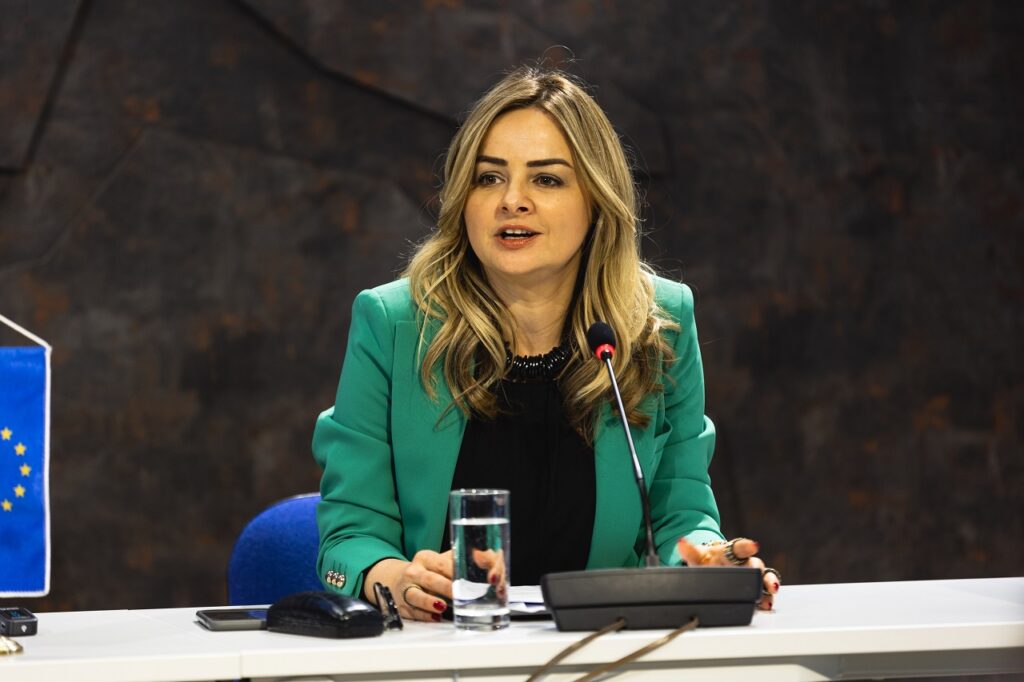
Jovana Janjušević, Executive director of the CZIP, highlighted many creative ideas that were sent to the fourth call. “There were many applications that amazed us and show how developed the civil society in Montenegro is. I am very pleased that with this mechanism we enable organizations of different development to continue their mission,” she said. From the perspective of an organization that has been dealing with the protection of nature and the environment for years, Janjušević emphasized the importance of projects that address Chapter 27 and those who do not have the right to be vocal – plants and animals, as well as climate change. “The EU has shown that it understands the civil sector, and that is why I encourage all organizations not to give up on ideas that have not passed, but to improve them and apply again because these are projects that are important for the community,” she stated.
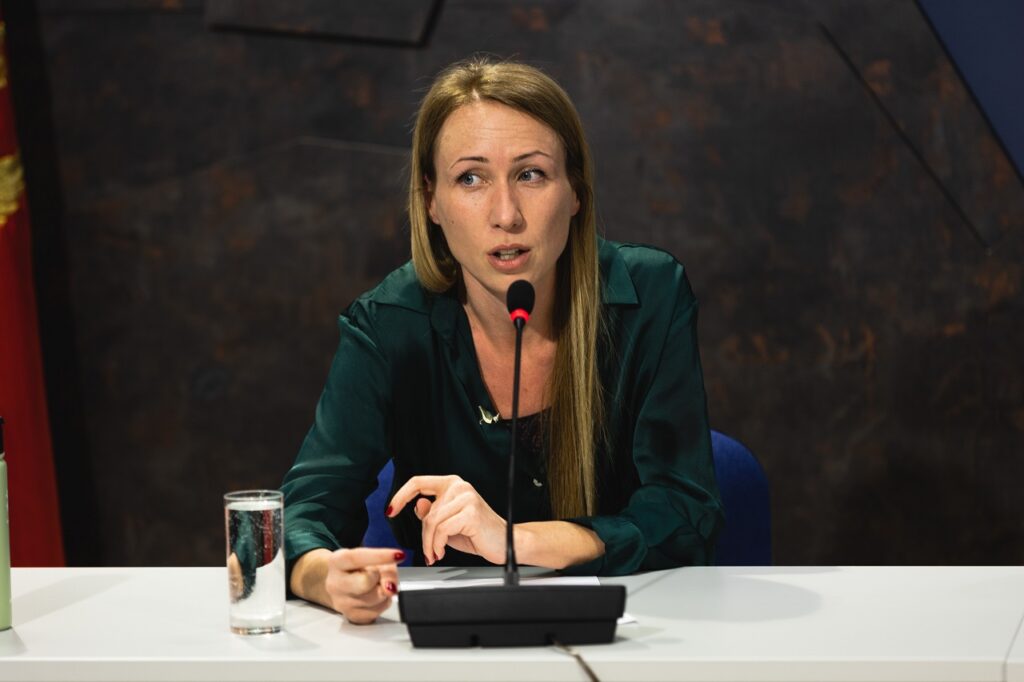
“Within our project, supported through the M’BASE programme, we will work on monitoring the promises of key institutions in the health system of Montenegro and report on their implementation. For decades, the institutions deliberately do not bring a set of indicators based on everyone in the civil sector can monitor and evaluate the development of the health sector. That is why we decided to take this job into our own hands now, as well as, through debates with influential people, to make a social development roadmap that is a bit different from the one that currently exists on the political scene, which we do not assess as good,” said the President of the Union of Doctors of Medicine, Milena Popović Samardžić.
“Through the “Screening” project, we want to improve the control of the work of institutions by increasing the transparency and responsibility of their actions, and all this by raising public awareness of the rule of law and the need to reduce corruption at a high level. A detailed analysis of the work of the institutions of the executive, legislative and judicial authorities in the period after the removal of the thirty-year government will be presented through six documentary-investigative series, and the findings of illegality and traces of corruption in the operation of the institutions, along with the evidence, will be directed to the competent institutions for further action,” said Miodrag Vujović from the organization KOD.
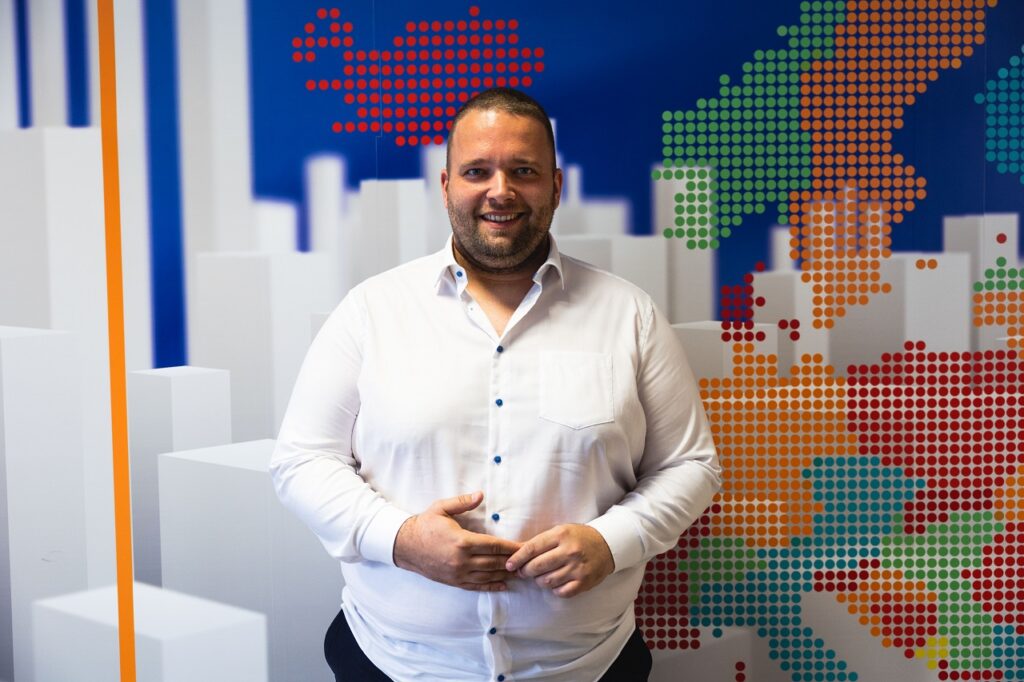
“Thanks to this support, we have the opportunity to now traditionally, for the seventh time, implement the “Healthy Relationships” programme, which strengthens capacities to help young people to overcome, that is, to resist violence in partner relationships, which is often gender-based, sexual, emotional, physical, even financial”, explained Aida Perović, Executive director of the NGO Prima.
“M’BASE is important for small organizations, especially local ones and those that are not from the central region. We are very glad that we are supported this year and that we will have the opportunity to start the assessment of the largest olive grove in the former Yugoslavia – the Ulcinj olive grove, which is at serious risk. By this, we will try to unite environmental protection and cultural landscape, which go hand in hand. We hope that we will be successful and motivate others with this project”, said Zenepa Lika, Executive director of MSJA.
“We focus on vulnerable groups, especially women with disabilities. Our goal is to affirm the right of women with disabilities to parenthood, and we plan to work on a film about women who are mothers, their stories, the prejudices of society they face, as well as how much the state has supported them… We will also do research on discrimination on the basis of personal characteristics, from which the publication will also emerge”, said Dejan Tmušić, President of the Association of Paraplegics in Cetinje.
“We are very grateful that this support has enabled us to continue our activities in the North, that is, in Berane, because we work in difficult conditions. I have spent my entire working life helping women and as part of a support group of women for women, and with this project we get an incentive that motivates us, provides accessibility in institutions and in a system that will recognize us better. In addition to the opportunity to implement our activities, this will also strengthen the capacity of our organization”, said Radmila Anđić, Coordinator of the SOS telephone for women and children victims of violence in Berane.
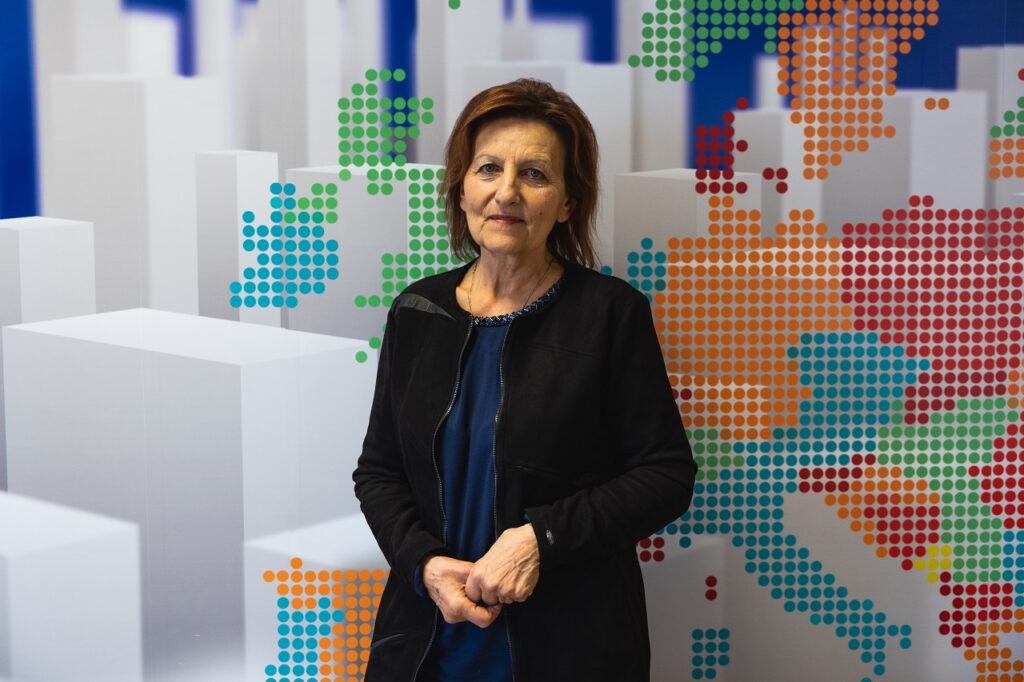
The fourth competition within the M’BASE programme was announced on 10 January 2023, and by its deadline, on 10 February, total of 92 project applications were received at the CCE address, of which 19 projects from the following lead organizations were supported – NGO ECO team (One step closer to the EU), NGO Prima (Healthy connections – loving is healthy), Montenegrin Ecologists Society (Ecological networks – key to development based on nature preservation), Punta Institute (Civil and voluntary – gender active for Ulcinj), Montenegrin LGBTIQ association Queer Montenegro (True LGBTIQ+ person – from strategic solutions to practical application of the law), Hepatitis Association Montenegro – HEP (HEP buster!), NGO Active Zone (Partnership for local democracy), Union of Doctors of Medicine of Montenegro (Dijalozi.me – Service tailored to citizens), Organization KOD (Screening), Center for Investigative Journalism – CIN CG (Is there a plan? – Spatial (non)planning, urbanism and infrastructure projects in Montenegro), NGO Alliance for Children and Youth – House (Ri ghts Up, Rise Up!), MSJA – Dr. Martin Schneider-Jacoby Association (Identification and analysis of “Ulcinj Olive Grove and Valdanos Bay – protection of natural and cultural heritage-landscape”), NGO Novi Horizon (Decision-making with young people), NGO Society of Montenegrin Publishers (“MILOVAN ĐILAS” Academy), Association of Paraplegics of Cetinje (My right – the right to independent choice), SOS phone for women and children victims of violence Bijelo Polje (Protection of women from gender-based violence is a condition for democracy and the rule of law), Institute for Strategic Studies and projections – ISSP (CSO for a more inclusive, transparent and “greener” PER), SOS phone for women and children victims of violence Berane (Strengthened on the way to zero tolerance of gender-based violence) and the Association of the Blind of Montenegro (I choose to choose).
The project “CSOs in Montenegro – from basic services to policy formulation – M’BASE” is implemented by the CCE, in partnership with the Friedrich Ebert Stiftung (FES), the NGO Center for the Protection and Study of Birds of Montenegro (CZIP) and the NGO Politikon network, and in cooperation with the Ministry of Public Administration and the Ministry of European Affairs of the Government of Montenegro. The project is financed by the European Union and co-financed by the Ministry of Public Administration.
Maja Marinović, programme associate

